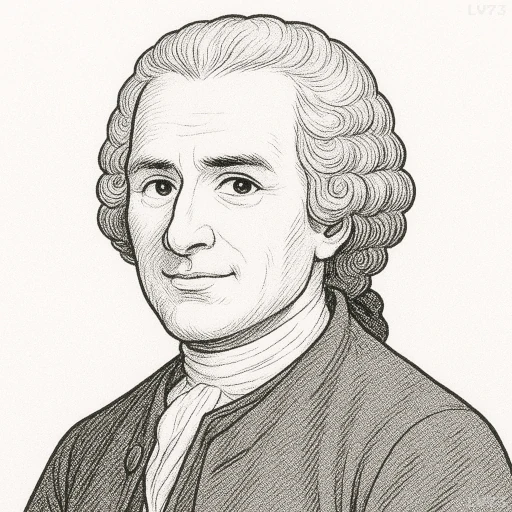“O love, if I regret the age when one savors you, it is not for the hour of pleasure, but for the one that follows it.”

- June 28, 1712 – July 2, 1778
- Born in Geneva
- Philosopher, political philosopher, writer, composer
table of contents
Quote
“O love, if I regret the age when one savors you, it is not for the hour of pleasure, but for the one that follows it.”
Explanation
In this quote, Jean-Jacques Rousseau reflects on the bittersweet nature of love and the complex emotions it evokes. He suggests that the true source of his regret is not the moment of love’s pleasure, but rather the aftermath—the emotional complexity or emptiness that often follows the intense feelings of romantic love. Rousseau seems to acknowledge that while the experience of love is fleeting and full of joy, the period after—marked by feelings of loss, desire, or the fading of passion—can be harder to bear. This insight into the impermanence of emotional experiences is a central theme in Rousseau’s exploration of human nature, where the intensity of feelings, such as love, is often tempered by the subsequent realization of their ephemerality.
Historically, Rousseau’s thoughts on love align with his broader understanding of human emotions and their connection to society. Throughout his life, Rousseau experienced complex romantic relationships, often filled with both deep connection and painful separation. His emotional vulnerabilities were often at odds with the expectations of society, which he critiqued for distorting natural human experiences. In works like The Confessions, Rousseau details the internal conflicts he faced in his relationships, where intense love was sometimes followed by isolation and disillusionment. The pleasure of love, in his view, could only be fully appreciated when juxtaposed with the inevitable emptiness or longing that follows.
In modern times, Rousseau’s perspective on love can be seen as an exploration of the transience and complexity of human emotions. Many people today experience the tension between the pleasure of romantic relationships and the emotional aftermath that can follow—whether from unrequited love, separation, or the eventual fading of intense romantic feelings. Rousseau’s words invite reflection on the cyclical nature of emotional highs and lows, acknowledging that love, while a source of deep joy, is often also tied to yearning and loss. This duality is central to the human experience and serves as a reminder of the fleeting nature of emotions, encouraging us to appreciate the moments of joy while acknowledging the inevitable passage of time.
Would you like to share your impressions or related stories about this quote in the comments section?



